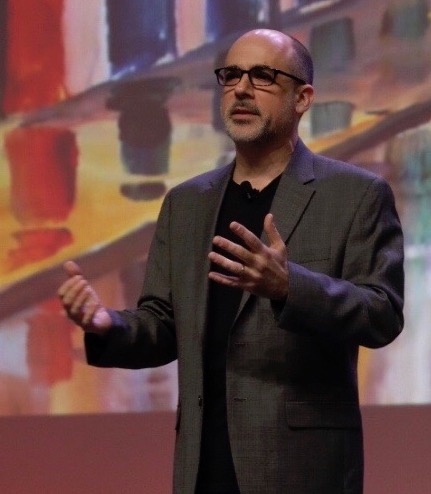
This week’s Torah portion this week is Va-eira, the portion that Jewish stutterers around the world – a rather exclusive club of which I am a reluctant member – both celebrate and loathe.
God speaks to Moses and says, “Go and tell Pharaoh to let the Israelites depart from his land,” to which Moses replies, “Why should Pharaoh listen to me, a man of impeded speech?”
Ugh.
Moses appeals to God yet again, “See, I am of impeded speech. How, then, should Pharaoh heed me?”
Believe me, most Jewish stutterers love this portion, which aligns us with Moses, one of the great leaders of history, and reminds us that even with “impeded speech” (that’s the Bible’s term, not mine), we can do great things.
In fact, my brother Rabbi Mark Glickman, himself a stutterer, has written quite a bit about Moses and his speech impediment. Mark writes that God tells Moses to speak no fewer than 70 times in the Bible. Regardless of any impediment Moses may have, he is the leader God has chosen, and Moses is the one he wants to deliver God’s message. The times Moses gets into trouble, Mark points out, are in fact the times he does not speak.
But do we really know that Moses stuttered at all? All the Bible says is “impeded speech” or “slow of tongue.” Commentators have suggested that, rather than being a stutterer – something I wouldn’t wish upon even an ancient Egyptian! – he just didn’t know how to speak the Egyptian language well. Or, maybe he had a lisp, or he accidentally scorched his tongue, or even more simply, he did not fancy himself a strong public speaker.
Public speaking is tough. In fact, some people might rather suffer from a lifetime of stuttering rather than be required to speak in front of any kind of a group. The great Jewish philosopher Jerry Seinfeld reminds us that the number one fear among people is speaking in public. The number two fear is death, which he points out means that the average person attending a funeral would rather be in the casket than giving the eulogy.
I think the importance of this Torah portion for us should not be that Moses might have been a stutterer, but rather that he had an important message to share – and even with what he characterized as a handicap, he shared the message. And he got creative. And he got help from Aaron. And he used props and multimedia. He turned staffs into snakes. He made it rain frogs from the sky. He made the rivers flow red with blood.
He did not give up. He was relentless. He believed in what he was saying, and he got people to listen. Pharaoh’s hard heart and mind were changed, and the Jewish people were let go.
The Jewish stutterers of the world love Moses, but Moses does not belong just to us. You can have him, too.
Moses belongs to anyone who has a “thing” they would rather not have. Your thing may be that you have a speech impediment, or that you are short or bald would just rather not speak in front of a large group. Whatever the thing is, let it be only a hurdle, not a wall – and hurdles can be jumped!
God told Moses, “Go to Pharaoh in the morning, as he is coming out of the water, and station yourself before the Pharaoh at the end of the Nile, and say to him ‘Let my people go.’”
Just for a moment, imagine that scene. The exact words may not have been Moses’s. He may have been using props, multimedia, and magic. He may have had palpable concerns and fears about being “slow of speech” and needing to talk to one of the most powerful men in the world. And yet he stood at that river, in the bright morning sun, and faced Pharaoh as he delivered his message strongly and clearly.
And here we all are.
So Moses belongs to all of us. I hope that as our new secular year begins and we think about resolutions and goals for our personal lives and for work, we also think about those things we each deal with every day of our lives that we wish we didn’t have to. I hope that, as we do so, we remember the story of Moses and embody some of that strength, some of that resolve. We all have important messages to share – and it’s time to get to work.
Related Posts

Judaism: The Faith of Feasting


